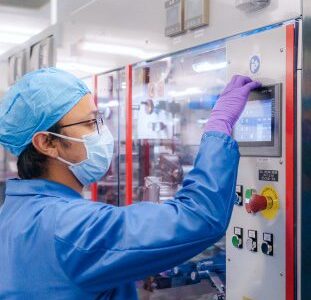Automotive Research Is Speeding Up With Department Of Energy Nextcar Grants
The Department of Energy has awarded nearly $18 million in funding for four new automotive projects across the United States aimed at reducing emissions and improving vehicle technology. Announced in March, these funds are a part of phase II of the Next-Generation Energy Technologies for Connected and Automated On-Road Vehicles (known as NEXTCAR), originally launched in 2016 to advance the White House’s target of net-zero carbon emissions by 2050. The program works to develop connected and automated vehicle technology. The awardees include the University of California Berkeley ($3.75 million), Michigan Technological University ($4.5 million), Southwest Research Institute ($5.25 million), and Ohio State University ($4.93 million).

“The same nifty features that are making cars easier to drive can also make them way more efficient, use less gas and save drivers money at the pump,” explained Secretary of Energy Jennifer Granholm. “These technologies are a win-win for drivers, and they’re also going to lead to more jobs, a cleaner transportation sector, and rapid progress towards our carbon-free future.”
Each grant recipient will focus on unique new research technology. The University of California Berkeley will adapt and expand its eco-route, eco-drive, and eco-charge controls to leverage connectivity and level 4 automation (level 4 is a self-driving car that can intervene if things go wrong) to generate additional efficiency benefits for electric vehicles. Michigan Technological University will expand its test fleet, also using level 4 automation technologies to focus on advances in efficiency and range. Ohio State will focus on advanced systems that control plug-in electric vehicles with a goal of improving energy efficiency by at least 30 percent. San Antonio’s Southwest Research Institute will adapt and grow its work on predictive eco-driving, eco-routing, and hybrid power control strategies automation.
NEXTCAR is designed to mitigate automobile energy consumption via the development of connected and automated vehicles. The first phase of the program worked to lower vehicle energy usage by 20 percent, while this new phase seeks to decrease light-duty passenger vehicles’ consumption by 30 percent. This significant focus on light-duty passenger vehicles is substantial because they make up nearly 60 percent of all automobile energy consumption.
The announcement is the latest of several initiatives by the Department of Energy that provide grants and loans to renewable energy development. Recently, Granholm also announced the department would resume a loan program that includes a $465 million loan to Tesla. These initiatives are a part of the new federal administration’s focus on making America more sustainable. As passenger vehicles operate more efficiently, the nation significantly cuts energy cost and consumption, leading to a cleaner, greener and healthier environment.





